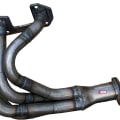Maintaining your engine is key to having a reliable and safe vehicle. Ensuring that your engine is serviced according to routine engine service schedules will help you avoid unexpected breakdowns and costly repairs. Regular engine service will also help keep your car running at its best performance. In this article, we'll discuss the importance of regular engine service, provide advice on how to keep your engine in peak condition, and explain the importance of following routine engine service schedules. Regular engine servicing is essential for keeping your Triumph TR in top condition and running smoothly.
There are several different types of routine engine service schedules that you should be aware of, each of which plays an important role in maintaining your engine. These include basic maintenance, tune-ups, oil changes, and other services. It's important to follow the manufacturer's recommended service schedule and to be familiar with the different types of service and how to perform them correctly.
Basic Maintenance:
Basic maintenance is the most basic type of service and includes tasks like checking all fluid levels, replacing air filters, and inspecting hoses and belts. It should be done at least once a year, but it's best to follow the manufacturer's recommended schedule for your specific model.This type of service is important because it can help prevent major problems down the road by keeping your engine running efficiently.
Tune-Ups:
Tune-ups are more comprehensive than basic maintenance and involve adjusting and calibrating engine components to ensure optimal performance. They should be done every few years or as recommended by the manufacturer. During a tune-up, your mechanic will check spark plugs, fuel injectors, air filters, and more. It's important to have a tune-up done regularly in order to keep your engine running at its best.Oil Changes:
Oil changes are another important type of service that should be done at least once a year or as recommended by the manufacturer.During an oil change, your mechanic will replace the oil filter and drain and refill the engine oil. This helps ensure that your engine is lubricated properly and running smoothly. It's also important to use the correct type of oil for your engine.
Other Services:
There are other services that you may need to do on a regular basis depending on your engine. These include changing the transmission fluid, flushing the cooling system, replacing spark plugs, and replacing fuel filters.It's important to follow the manufacturer's recommended service schedule for these tasks.
Importance of Following Manufacturer's Service Schedule:
It's important to follow the manufacturer's recommended service schedule in order to keep your engine running at its best. Following the schedule will help ensure that all services are done on time and that any necessary repairs are made quickly. This will help prevent major problems down the road and keep your engine running efficiently.Tips and Techniques for Maintaining Your Engine:
In addition to following the manufacturer's recommended service schedule, there are some other tips and techniques you can use for maintaining your engine. These include regularly inspecting hoses and belts, checking fluid levels, using the correct type of oil for your engine, and inspecting spark plugs.Doing these things regularly will help ensure that your engine is running efficiently.
Common Signs of an Engine Problem:
There are some common signs that indicate an engine problem such as decreased fuel economy, increased emissions, engine misfiring, stalling, and excessive exhaust smoke. If you notice any of these signs, it's important to take action immediately in order to prevent further damage or costly repairs.Benefits of Routine Engine Servicing:
Regularly servicing your engine can provide several benefits such as improved fuel economy, reduced emissions, improved performance, and increased lifespan. Taking care of your engine can help ensure that it runs efficiently for years to come.Benefits of Regular Engine Service
Regular engine servicing is essential for keeping your Triumph TR in top condition and running smoothly. Regular engine servicing offers a number of benefits, such as improved fuel economy, reduced emissions, fewer breakdowns, and extended engine life. Improved fuel economy is one of the main benefits of regular engine servicing.Routine maintenance can help ensure that your engine is running efficiently and not wasting fuel. Regular servicing also helps identify any parts that may need replacing or adjustment, which can further improve fuel efficiency. Regular engine servicing can also help reduce emissions from your Triumph TR. Cleaner engines release fewer pollutants into the atmosphere. By scheduling regular engine service, you can help keep the air around you cleaner. Frequent engine servicing can also help reduce the risk of breakdowns.
Skipping routine maintenance can lead to problems with your engine, such as worn spark plugs or dirty filters, which can cause it to run poorly and even break down. Regular servicing can help ensure that these problems are identified and fixed before they become serious. Finally, regular engine servicing can help extend the life of your Triumph TR's engine. It is important to keep all parts of your engine in good condition, as this will help it last longer and perform better for many years to come.
Maintenance Tips and Techniques
Regular engine servicing is essential for keeping your Triumph TR in good condition and running smoothly. To ensure that your engine runs at its best, there are several maintenance tips and techniques that should be regularly carried out.These include:Inspecting Hoses and Belts:It is important to regularly check the condition of hoses and belts in your engine. Look for signs of wear and tear, such as cracks, fraying, or looseness. If any of these are present, it is best to replace the hose or belt as soon as possible.
Checking Fluid Levels:
It is also important to check the levels of fluids in your engine. This includes oil, coolant, and brake fluid.If any of these levels are low, it is best to top them up as soon as possible. Additionally, it is a good idea to look for any signs of leakage, which could indicate a more serious problem.
Using the Right Oil:
It is essential to use the right type of oil for your engine. The type of oil you need will depend on the make and model of your vehicle. Be sure to check your owner’s manual for the correct oil grade.Cleaning Your Engine:
Regularly cleaning your engine is important for ensuring that all its components are in good working order.This can be done with a pressure washer or simply with a hose. When cleaning your engine, be sure to take extra care around sensitive components.
Common Signs of Engine Problems
It's important to be aware of the common signs of engine problems so that you can take action if necessary. Some of the most common signs include:Loud noisesIf your engine is making loud, unusual noises, it could be a sign that something is wrong. Listen carefully for any strange noises coming from the engine, such as banging, knocking, or squeaking.Smoke from the exhaust
If you see smoke coming from the exhaust, this could indicate a problem with the engine.Check to see what type of smoke it is – white smoke usually indicates an issue with the fuel system, while black smoke could be caused by an oil leak or a blocked air filter. Check to see what type of smoke it is – white smoke usually indicates an issue with the fuel system, while black smoke could be caused by an oil leak or a blocked air filter.
Decreased performance
If your engine is not performing as well as it used to, it could be a sign of a problem. Pay attention to any changes in acceleration or power and look out for any jerking or stuttering when you're driving.Unusual smells
If you smell anything unusual coming from the engine, such as burning oil or gasoline, it could mean that there is a problem. Make sure to check for any leaking fluids or other potential causes.Warning lights
Your car's dashboard should have warning lights that indicate when there is a problem with the engine. If you notice any warning lights on the dashboard, make sure to investigate further. By being aware of the common signs of engine problems, you can take action as soon as possible and ensure that your engine is running smoothly.Types of Routine Engine Service
Maintaining your engine is an important part of ensuring its longevity and reliability.Depending on your vehicle and the type of engine, there are different types of routine engine service schedules that need to be followed. It’s important to understand the different types of service and their importance to ensure that your engine is running at its best.
Oil Change:
The most common type of service is an oil change. This should be done at least every 3,000 miles or as specified by your vehicle manufacturer.An oil change helps to keep your engine lubricated and prevents buildup of dirt and debris.
Filter Change:
Along with an oil change, the engine filter should also be changed regularly. This helps to keep the engine clean and free from any debris that could cause it to overheat or breakdown.Tune-Ups:
A tune-up usually includes a replacement of spark plugs, air filter, and other components that can affect the performance of your engine.This helps to ensure that your engine is running at optimum efficiency.
Coolant Flush:
Coolant is important for keeping your engine cool and preventing it from overheating. It’s important to regularly flush out the coolant system to remove any debris or buildup that can cause problems. It’s essential to follow a regular routine engine service schedule in order to keep your vehicle running smoothly and efficiently.By understanding the different types of services and their importance, you can ensure that your engine is always running at its best. Regular engine servicing is essential for keeping your Triumph TR in good condition and running smoothly. By understanding the different types of routine service schedules, as well as important maintenance tips and techniques, you can ensure that your engine will always be running at its best. It is important to use quality parts and follow the manufacturer's recommended service schedule for best results. Regular engine service can help prevent costly repairs and improve overall engine performance.


